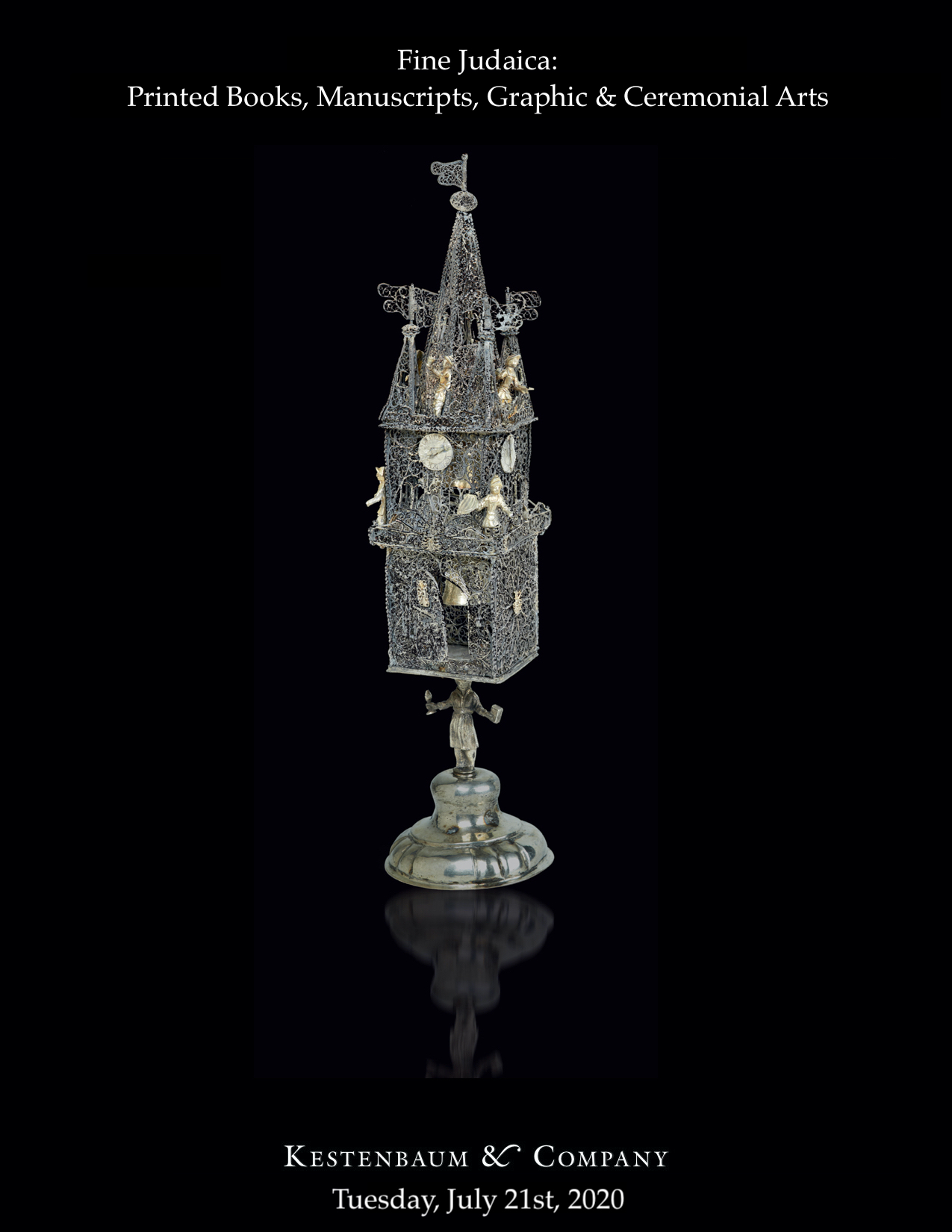Medical Diploma from the University of Padua, of Emanuel Delmedigo de Dattolis, a Venetian Jewish physician.

Auction 90 |
Tuesday, July 21st,
2020 at 1:00pm
Fine Judaica: Printed Books, Manuscripts, Graphic & Ceremonial Arts
Lot 210
(MEDICINE).
Medical Diploma from the University of Padua, of Emanuel Delmedigo de Dattolis, a Venetian Jewish physician.
Padua: March 20th 1686
Est: $8,000 - $12,000
PRICE REALIZED $12,500
“D[octor] Emanuel a Medico de Dactelis Hebreus Venetus D[octor] Iacobi Filius” to give the full title of this Jewish medical school student, was one of 325 Jewish physicians who graduated the medical school of the University of Padua between 1409 and 1816.
This richly decorated diploma, composed in gold and black inks on vellum by the artist especially employed by the university to write and illuminate its diplomas, Jo. Aloysius Foppa, begins with the words “In dei aeterni nomine Amen” (in the name of the eternal God), rather than the typical “In Christi nomini Amen.” This was a small but significant consideration afforded Jewish students at the medical school, who otherwise faced difficulties such as having to pay double the tuition of Christian students.
The diploma is signed by the professors who taught Emanuel: Antonius de Marchettis, professor of surgery; Joames Casparo Wolfus Ulmensis, and Nicolaus Caliaphius Cretens, professor of philosophy and rhetoric.
Attached to the manuscript are two <<remarkably intact>> seals of the university, each housed in a gilded leather casing.
Between the 12th and 16th centuries, almost all European universities were under Papal control and Jews were restricted entry without compromise. Yet a singular exception to this was the University of Padua, established in 1222. As "Universa Universis Patavina Liberta" and outside of papal control, Jewish students were permitted to study and qualify for academic degrees. The Medical School, opened in 1250, was generally regarded as the best in Europe.
The university’s tolerant and liberal approach attracted students the world-over, particularly drawing Jews from across Europe to Padua to study medicine. However, many of these young Jews initially lacked the necessary academic and cultural prerequisites, including a basic knowledge of Latin, the official language of the university. They therefore greatly benefited from the generous support of the Jewish community of Padua and, in particular, that of Paduan medical alumni, the best known of whom was Dr. Salomo Conigliano.
Between the years 1409 and 1816, 325 Jewish physicians graduated from the University of Padua. Among them were many distinguished scholars including Joseph del Medigo, Joseph Hamiz, Benjamin Mussafia and Tobias Cohen. In addition to their medical contributions, many of these Jewish graduates served their communities as communal leaders. They all shared a common scholarly and cultural heritage, with common interests and values. Yet they also had the distinct societal advantage of maintaining close contacts with their Gentile peers.
It was customary, upon graduation, to commission diplomas in the form of richly decorated booklets and the format and style of these diplomas was unique to universities in Northern Italy. The text of the standard diploma, however, included references to Christianity which were unsuitable for the Jewish graduates. The university, demonstrating considerable tolerance, allowed for the alteration of the customary Christian formulae. Whereas the standard diplomas from Padua began with the words "In Christi Nomine aeterni" and recorded the date as "Anno a Christi nativitate," diplomas created for Jews substituted these phrases with "In Nomine Dei aeterni" and "currente anno.”
On the Jewish graduates of medicine at the University of Padua see: Abdelkader Modena and Edgardo Morpurgo, Medici e chirurghi ebrei dottorati e licenziati nell'Università di Padova dal 1617 al 1816 (Bologna, 1816).
Emanuel Delmedigo de Dattolis came from a Jewish family of Venice. He is noted by Asher Salah in his La République des lettres. Rabbins, écrivains et médecins juifs en Italie au XVIIIe siècle (2007) p. 188 and 276.
